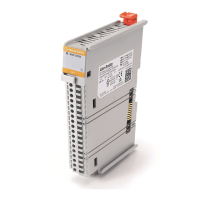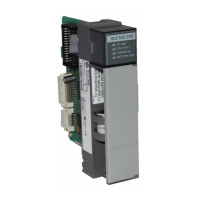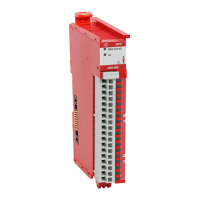26 Rockwell Automation Publication 5000-UM005B-EN-P - November 2015
Chapter 2 Common Analog I/O Module Features
Rolling Timestamp of Data
The rolling timestamp is a continuously running 15-bit rolling timestamp that
counts in milliseconds from 0…32,767 ms.
The rolling timestamp value is reported in the I.Chxx.RollingTimestamp tag for
the 5069 Compact I/O analog I/O modules.
Rolling Timestamp with the 5069-IF8 and 5069-IY4 Modules
Typically, the 5069 Compact I/O analog input modules scan their inputs at the
RPI. The module also updates the rolling timestamp data at the RPI. The
controller program uses the last two rolling timestamp values to calculate the
amount of time between the samples.
A system time change can cause a slight change in input sample timing. The
rolling timestamp accurately reflects the change.
There can be jitter in the timing between samples before and after the system
time change.
Rolling Timestamp with the 5069-OF4 and 5069-OF8 Modules
For the 5069 Compact I/O analog output modules, the rolling timestamp value
is updated only when new values are applied to the Digital to Analog
Converter (DAC).
Floating Point Data Format
The 5069 Compact I/O analog I/O modules return channel data to the
controller in the IEEE 32-bit floating point data format. In your Logix Designer
application, the data type is REAL.
The floating point data format lets you change the data representation of the
selected channel. Although the full range of the module does not change, you can
scale your module to represent I/O data in specific terms for your application.
For more information on using scaling, see
page 33.
Calibration
The 5069 Compact I/O analog I/O modules use precise analog components that
maintain their specifications over time. The modules are calibrated via the
following methods:
• Factory calibration when the modules are built.
• User-executed calibration.
For more information on how to calibrate a module, see Chapter 7,
Calibrate the
Module on page 109.

